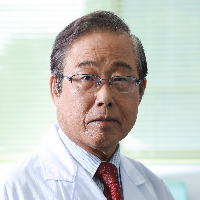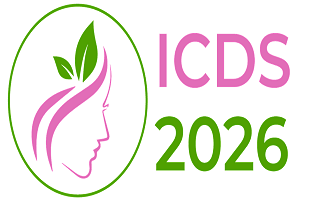3rd International Conference on
Dermatology & Skincare
April 16-17, 2026 | Chicago, USA

Address: 9300 Bryn Mawr Avenue, Rosemont, IL 60018, United States
ICDS 2026

Utsunomiya University, Japan
Abstract:
Little is known about the anti-pigmenting effects of whitening agents on solar lentigos (SLs), which comprise ~60% of hyperpigmented facial lesions of Asian subjects. Lotions with or without 6% L-ascorbate-2-phosphate trisodium salt (APS) (test lotion (TL) and placebo lotion (PL), respectively) were applied twice daily on the entire right and left sides of the face for 24 weeks in a double-blind half-face study of 27 Japanese females with SLs. To evaluate anti-pigmenting effects on previously selected SLs, lightness (L) and melanin index values that reflect pigmentation levels were measured using a color difference meter and a Mexameter MX18, respectively, at 0 and 24 weeks. The L values significantly increased in the TL treated SLs and the non-lesional surrounding skin (NLS) at 24 weeks, whereas the L values of PL-treated SLs and NLS remained unchanged. The number of subjects with > 2.0 increased L value, levels distinctly recognizable by subjects at 24 weeks compared to 0 week was 7 of 27 (TL) and 0 of 27 (PL) in SLs and 3 of 27 (TL) and 0 of 27 (PS) in NLS. The melanin index values also significantly decreased to a more extent in TL-treated SLs than in PL-treated SLs at 24 weeks, while the melanin index values of TL-treated NSL significantly decreased to a more extent than PL-treated NSL. These findings strongly indicate that APS has a weak but significant anti-pigmenting effect on SLs and a significant whitening effect even on normally pigmented healthy skin.
Biography:
Genji Imokawa has completed his PhD at the age of 37 years from Kobe University School of Medicine Department of Dermatology. He is now the professor of Center for Bioscience Research & Education, Utsunomiya University. He has published more than 185 papers in reputed English journals and has been serving as an editorial board member of several journals.
